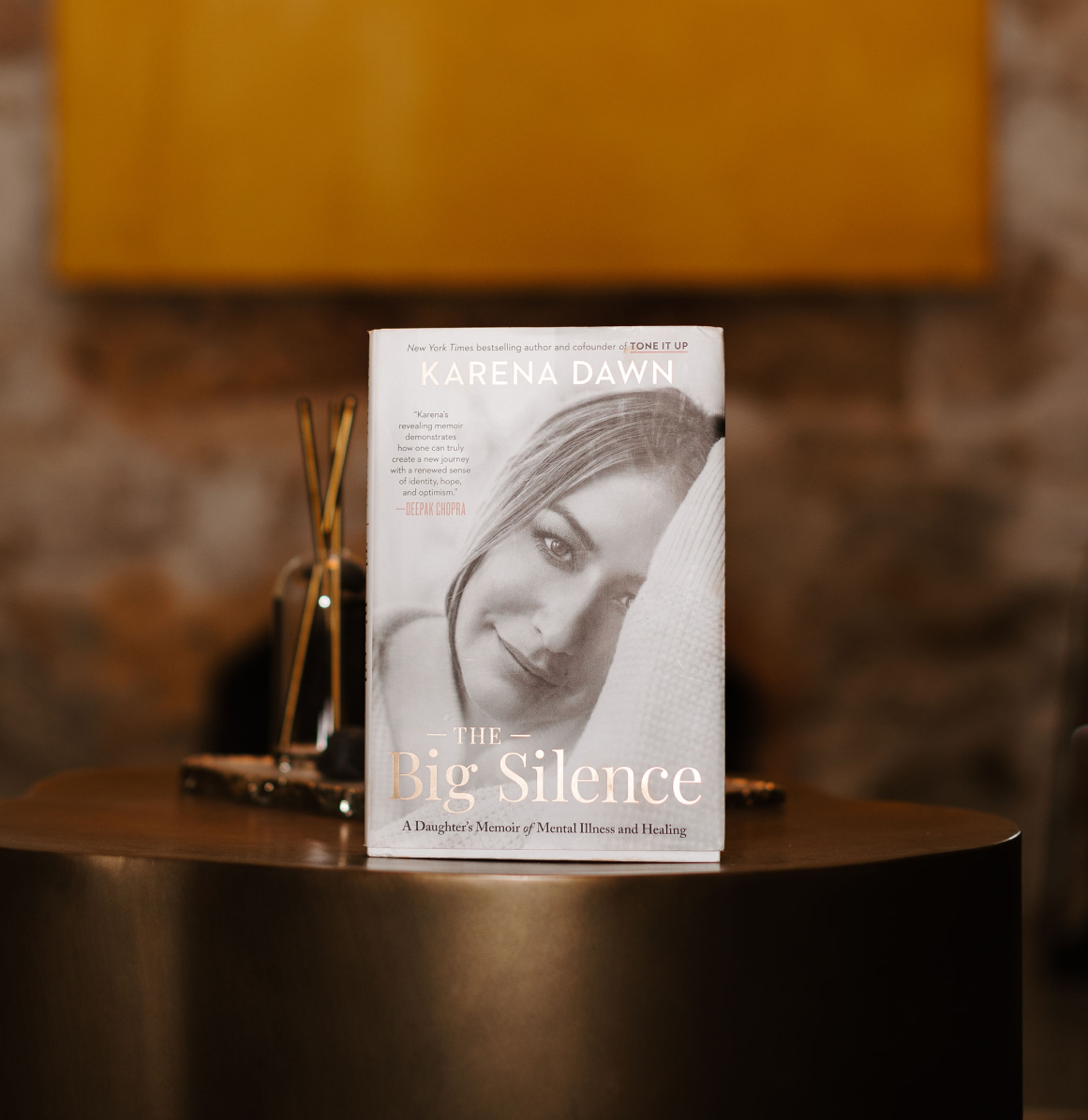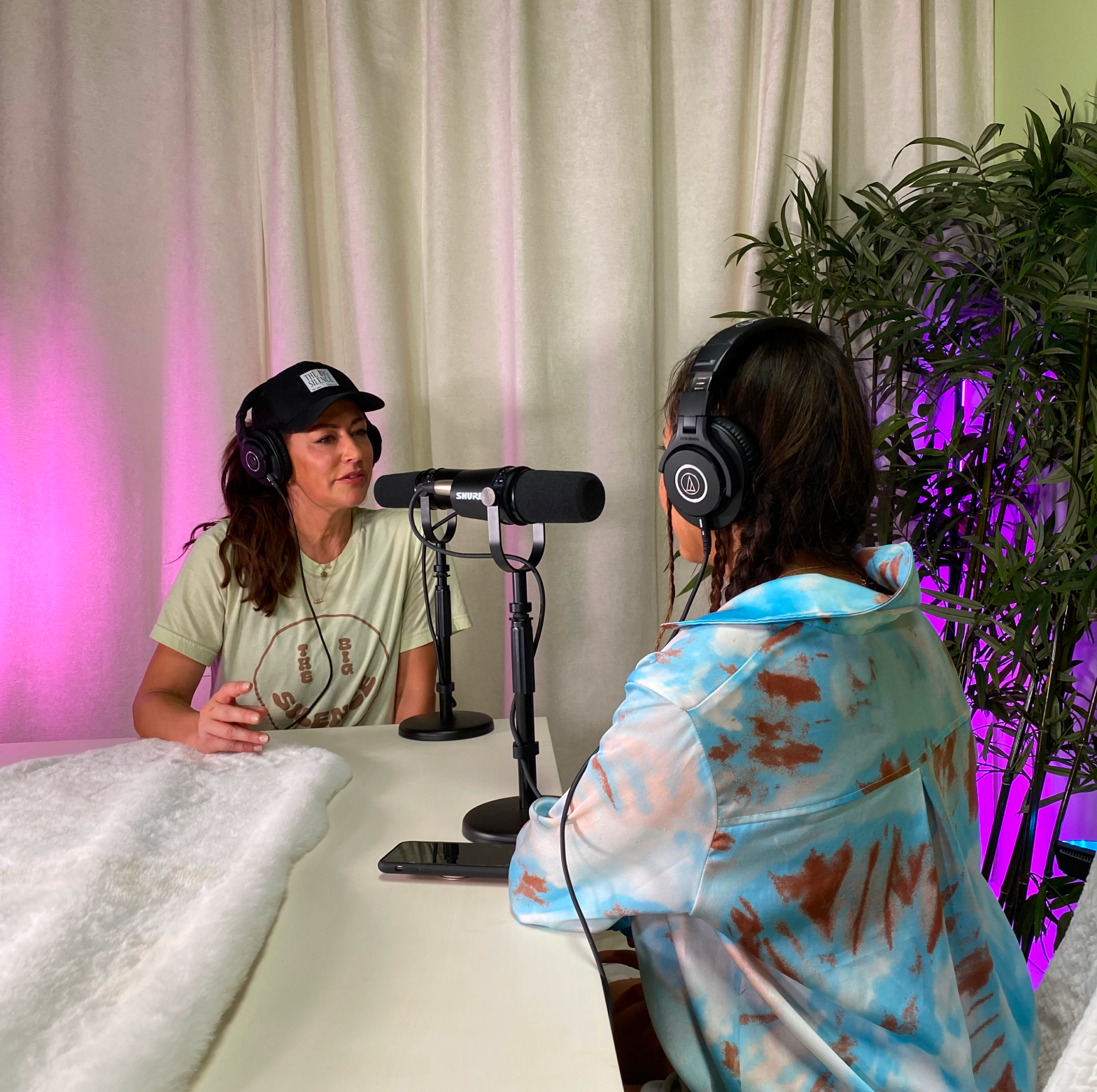
How to Stop Over-Committing and Prioritize Yourself: Karena & James' Friend Wrangling Tips
Today on Big Feels, Karena and James dive into the common struggle of being a people-pleaser and over-committer. They share their personal strategies for saying no to excessive commitments and finding balance, especially when traveling for work. James introduces the concept of "friend wrangling," a simple yet effective way to see multiple friends at once while keeping time for rest, self-care, and business priorities. Karena adds her perspective, discussing how learning to prioritize downtime and saying no has improved her quality of life.
Whether you're juggling a busy work schedule, travel frequently, or just want to stop feeling overwhelmed by social obligations, this conversation offers practical tips to help you reclaim your time and energy.
Key Takeaways:
- Friend Wrangling: Gather multiple friends in one place, like a bar or restaurant, for a group hangout rather than individual meetups. This saves time and energy while staying connected.
- Prioritize Rest and Focus: Especially when traveling for business, saying no to extra social events helps you rest, recharge, and stay productive.
- Effective Boundaries: Learning to be selective and say no to some invitations allows more time for self-care, business goals, or simply relaxing.
- Balance Social Life and Work: Create a structure where you can enjoy time with friends without sacrificing personal or professional priorities.
- Maximize Downtime: Sometimes the best moments come from doing nothing—whether it's a quiet night alone or cutting events short to recharge.
Who This Video Is For:
- Busy professionals trying to balance work and social life
- Frequent travelers who feel overwhelmed by social obligations
- Anyone struggling with people-pleasing or overcommitting
- Individuals seeking more time for self-care and personal goals
How to Stop Being a People-Pleaser and Over-Committer: Tips for Learning to Say “No” and Prioritize Yourself
Do you often find yourself saying "yes" to requests even when your schedule is full, your energy is low, or your heart isn't in it? If you tend to put others' needs ahead of your own and constantly overcommit, you might be caught in the people-pleasing trap. While helping others can be rewarding, overcommitting can lead to stress, burnout, and a loss of personal balance.
Here’s why being a people-pleaser and overcommitting is harmful and how to break the cycle by learning to say “no” and prioritize yourself.
The Risks of Being a People-Pleaser
-
Burnout and Exhaustion
Constantly saying yes to every request drains your energy. The more commitments you take on, the less time and space you leave for yourself, leading to physical and emotional exhaustion. This prevents you from showing up fully for the things that truly matter to you, and in the end, both you and those you're trying to help suffer. -
Loss of Personal Identity
When you prioritize everyone else's needs over your own, you risk losing touch with your own desires and goals. Over time, you might start feeling resentful or lost because you've been living according to what others want, rather than what you want for yourself. -
Strained Relationships
While people-pleasing might feel like it's helping your relationships, it often creates a dynamic where others expect you to be available all the time. You may start to feel resentful, and those around you may take advantage of your kindness. Healthy relationships require mutual respect for boundaries, not constant sacrifice from one party. -
Compromised Self-Care
Saying yes to everything leaves little room for self-care. You might find yourself skipping meals, missing workouts, or sacrificing sleep because you've overextended yourself. Prioritizing others at the expense of your own health can lead to long-term problems like stress, anxiety, and burnout.
Tips to Stop Over-Committing and Start Prioritizing Yourself
-
Recognize Your Limits
The first step in breaking free from overcommitting is acknowledging your own limits. Understand that you are one person with finite time and energy. Assess how much you can realistically handle and don’t be afraid to let others know when your plate is full. -
Pause Before You Say Yes
Create a buffer between the request and your response. Instead of immediately agreeing, practice saying things like, “Let me think about it,” or “I’ll get back to you.” This will give you time to consider whether you can or want to commit. It also reduces the pressure to say yes out of guilt or habit. -
Prioritize Your Own Needs First
It’s not selfish to put your needs first. In fact, doing so allows you to show up better for others. Evaluate your current obligations and commitments, and ask yourself: “What is truly important to me?” When your own needs are met, you'll have more energy and focus to give back in meaningful ways. -
Learn to Set Healthy Boundaries
Setting boundaries is an essential part of self-care. Boundaries communicate your limits to others, and they help protect your time and energy. When someone makes a request that doesn’t align with your priorities, a polite but firm “no” is a perfectly acceptable response. Remember, “no” is a complete sentence. You don't need to justify your reasons. -
Practice Saying No in a Kind Way
Saying no doesn’t have to feel harsh or confrontational. You can politely decline with phrases like: - “Thank you for thinking of me, but I won’t be able to take this on right now.”
- “I appreciate the offer, but I’m focusing on my own projects at the moment.”
- “That sounds like a great opportunity, but I’m currently at capacity.” This way, you're acknowledging the request while honoring your own limits.
-
Delegate or Ask for Help
If you’ve already overcommitted, consider asking for help or delegating tasks. It’s okay to admit when you need assistance or when you've taken on too much. Asking for help doesn’t mean you’re weak—it means you’re self-aware. -
Reflect on the Deeper Why
Why do you feel the need to please others or overcommit? Are you seeking validation, approval, or avoiding conflict? Understanding the deeper motivations behind your people-pleasing tendencies can help you address the root cause. This self-awareness will empower you to make better decisions about where you spend your time and energy.
How Saying “No” Benefits You
-
More Time for What Truly Matters
When you stop overcommitting, you’ll find that you have more time and energy for the things that are most important to you. Whether it's spending time with family, focusing on a passion project, or simply resting, you’ll feel more balanced and fulfilled. -
Increased Confidence and Self-Worth
Each time you say no to something that doesn’t serve you, you're reinforcing your self-worth. You're sending the message to yourself that your needs and time are valuable. This can boost your confidence and help you make decisions that align with your goals and values. -
Better Quality of Relationships
By setting boundaries, you’re fostering healthier relationships built on mutual respect. People will begin to recognize and appreciate your limits, and you’ll feel less resentful and more present when you do choose to say yes.
Final Thoughts: Embrace Your Own Worth
Breaking free from people-pleasing and overcommitting isn't easy, but it’s essential for your well-being. Remember that saying no doesn't mean you’re letting others down—it means you’re respecting yourself. Prioritizing your own needs isn’t selfish; it’s necessary.
When you learn to set boundaries and say no, you’ll reclaim your time, energy, and sense of self. You’ll be able to show up more authentically in your relationships and find greater satisfaction in the things you choose to commit to. It’s time to stop overcommitting and start living life on your own terms.
BIG FEELS FEEDBACK
How are you really feeling? We'd love to hear about your week, or share your favorite tools for the week in the comments!
|
The Big Silence Foundation, Inc is a U.S. tax-exempt 501(c)(3) organization dedicated to changing the culture of mental health. Consistent with IRS guidelines, all gifts are tax-deductible to the extent allowable by law. Donate to bring change with us!
|
Start a conversation in your The Big Silence apparel.
The information provided is for educational purposes only, and does not substitute for professional medical advice. Users are advised to consult a medical professional or healthcare provider if they're seeking medical advice, diagnoses, or treatment.
**Please note that if your thoughts start becoming hopeless or suicidal, contact emergency at 988 or 911 andcrisis services immediately. You can find more resourceshere. Text HELLO to 741741 to be connected with a trained crisis counselor.










